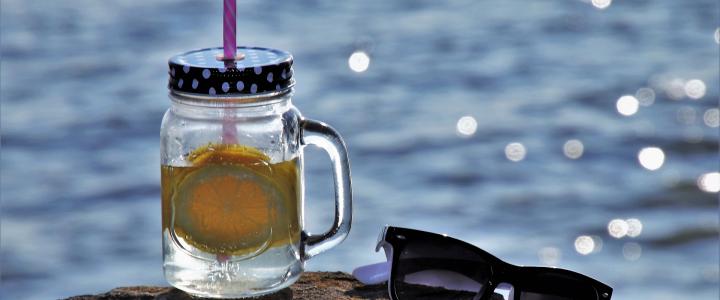
Seacoast Drinking Water Initiatives
The Seacoast Commission on Long-Term Goals and Requirements for Drinking Water (Commission) was established under RSA 485-F:6 in 2017 and will work through November 1, 2029.The Commission currently has three significant initiatives underway as described below.
Seacoast Private Well Testing Initiative
Recognizing that a large portion of the Seacoast population obtains their drinking water from unregulated private wells, the Commission determined that a private well education and testing initiative should be developed and implemented. A series of workshops are being offered in Seacoast communities. Workshops are open to homeowners in eligible Seacoast towns who are interested in testing their well water for nineteen contaminants, including four PFAS compounds. Workshops provide information about contaminants that can occur in groundwater, their associated health impacts and options for removing the contaminants. At the end of each workshop, water testing kits are provided to attendees with an assigned return location and date to submit samples to the laboratory. Laboratory results are provided with treatment recommendations to homeowners using NHDES’ Be Well Informed tool. A free Zero Water pitcher is provided to eligible low-income households whose drinking water exceeds New Hampshire’s maximum contaminant level for arsenic. To date, workshops and testing have occurred in about half of the participating towns. The testing program will be completed in 2024. A presentation has been developed to summarize results for each town that has participated in the testing program to date.
Regional Household Hazardous Waste Feasibility Study
The Commission identified that current options for properly disposing of household hazardous waste are inadequate. Currently, there is no year-round facility that can collect hazardous waste from households and the limited and infrequent ability for households to dispose of hazardous waste increases the likelihood of improper disposal. When hazardous waste is improperly disposed of it can contaminate drinking water. The Rockingham Regional Planning Commission will be completing a regional household waste feasibility study to assess the costs and benefits associated with three approaches for collecting household hazardous waste. These approaches include:
- Multiple collections without a permanent storage facility.
- A permanent storage facility with set collection dates.
- A permanent storage facility with continuous collection.
The study will include substantial input from the public and towns in the Rockingham Regional Planning Commission region. This region has a population of approximately 200,000 people, 330 active public water systems and thousands of private wells.
Seacoast Emergency Interconnection Study Update
The Commission identified a significant opportunity to improve the regional cooperation in the management of drinking water resources in the Seacoast region, particularly in the event of an emergency. The Commission developed a request for qualifications to retain consulting services to complete a comprehensive, high-level assessment of existing and potential water system interconnections for communities in the Seacoast region. The study is intended to inform investments in the region’s public water systems to efficiently allocate the region’s source water and prioritize infrastructure improvement projects (supply, raw water transmission, treatment, pumping, distribution, storage) in the near-term that will be consistent with the region’s long-term needs, water system emergency backup supplies and mutual aid agreements. The study will include:
- Assessing the current and projected average and maximum day demand and water supply capacity for existing water systems and communities.
- Exploring the needs and opportunities for emergency mutual aid and interconnection and associated mutual aid agreement(s).
- Identifying opportunities to consolidate very small public water systems with larger systems to address regulatory requirements, decrease costs, or address technical or managerial capacity issues for the very small water systems.
- At the request of participating large community water systems, exploring opportunities for regional cooperation in the management of water systems under non-emergency conditions.
- Assessing the feasibility, benefits and limitations of interconnecting, whether supplies are adequate and what steps need to be taken to establish the connection(s).
The Commission is also working on a number of other issues and continues to discuss proposed legislation that may impact drinking water supplies. The Commission’s website provides upcoming meetings details and additional information.




